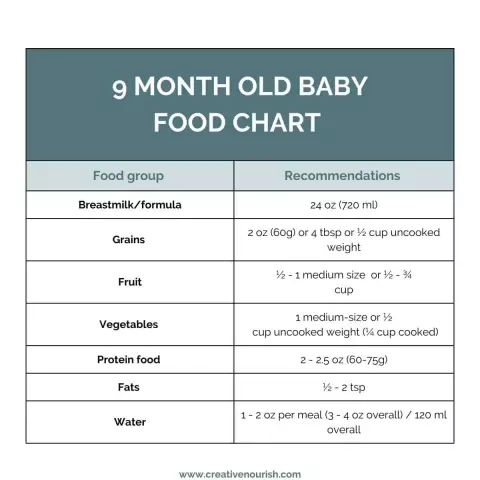- Author Rachel Wainwright [email protected].
- Public 2023-12-15 07:39.
- Last modified 2025-11-02 20:14.
Feeding a baby at 4 months
Mother's breast milk for feeding a baby at 4 months is still the basis of the diet, but since the baby is actively growing, the body's need for nutrients increases, to satisfy it, it is necessary to gradually introduce new products. The menu of a normally developing child at 4 months should include freshly prepared juices from fruits and vegetables, boiled vegetable puree, cottage cheese, fresh fruit puree, egg yolk.
Feeding a baby at 4 months: vegetable puree

It is recommended to gradually replace the third meal with vegetable puree in five to six single feeding of a 4 month old baby with breast milk. Vegetables will provide your baby with additional vitamins, minerals and fiber. With normal development, his digestive organs are already able to hold and digest more complex food, but for the first time, the baby should be given one teaspoon of vegetable puree and carefully monitor the reaction of the child's body to a new product. Increasing the portion, within a week, completely replace one breastfeeding with a vegetable puree.
Vegetable puree for feeding a child at 4 months is prepared as follows: wash vegetables with warm water, peel, pour over with boiling water, then boil over low heat in a small amount of water under a lid or steam. After the vegetables have cooled down, you should chop them in a blender or rub through a fine strainer. Dilute the resulting puree to the desired consistency with vegetable broth or diluted boiled milk, add sunflower, corn, olive or softened butter, starting from 1 g, gradually increase to a teaspoon. For the preparation of vegetable puree, a variety of vegetables are used, such as potatoes, carrots, cabbage, pumpkin, zucchini, tomatoes, and beets. If possible, you can add bell peppers, cauliflower, broccoli, spinach. Potatoes in baby vegetable puree should be no more than half of the total. If the baby is overweight, it is better to take cabbage, zucchini, pumpkin for making mashed potatoes, they contain less carbohydrates.
Feeding a baby at 4 months: cottage cheese
At the age of 4 months, the child needs to be given fresh cottage cheese daily, which is desirable to cook at home or take in the dairy kitchen. For the preparation of baby cottage cheese, a special children's kefir is taken, it must be poured into a container, an enamel mug or a small saucepan is suitable, the dishes with kefir should be placed in a pan with hot water and kept over low heat until a dense clot forms from the kefir. It should be put in cheesecloth or a thick sieve and filtered. From 200 g of kefir, 2 teaspoons of cottage cheese is obtained, a daily portion necessary for a child at 4 months.
Talk to your pediatrician if they can recommend making special calcined curd for your child. Usually, such a curd is needed for children with a lack of calcium, for example, if the fontanelle does not close well or the first teeth erupt early.
The technology for preparing calcined cottage cheese is the same as for the usual one, only instead of baby kefir, 300 g of boiled milk is taken, 3 ml of 20% calcium chloride is added to it (the drug is purchased at the pharmacy).
For the first feeding of a child at 4 months, less than half a teaspoon of cottage cheese is ground with breast or boiled cow's milk and given to the baby before meals in the morning and evening. If the child's body reacts normally, there are no problems with the intestines and allergic manifestations, next time give 3/4 spoon a day and then twice a day, a teaspoon before meals.
Feeding a baby at 4 months: egg yolk
Egg yolks are rich in essential amino acids, contain folic acid, iodine, iron, lecithin, vitamins B2, B12, A, D. All these substances are necessary for the baby to grow and develop. But it should be borne in mind that eggs are an allergenic product. During the cooking process, the bulk of the allergens in the egg is destroyed, so the duration of boiling the eggs should be at least 20 minutes.
Starting from 4.5-5 months with breastfeeding and from 4-4.5 months when feeding with formulas, the child is introduced to the menu with the yolk of boiled eggs. For the first time, it is enough to grind a small piece with milk, the size of a match head, to check how the body will react to new food. If everything is normal and an allergic reaction is not observed, then gradually the volume is brought to a quarter of the yolk per day, it is better to give the yolk in one of the morning feedings.
If possible, preference should be given to quail eggs, they are more useful in composition, less likely to cause an allergic reaction. You need to cook quail eggs, like chicken eggs, for at least 20 minutes.
4 months: breastfeeding regimen, sleep
At 4 months, the baby's daily breastfeeding interval can be 3-4 hours, the night's sleep can last 6.5-8 hours. But for many babies, when breastfeeding, sleep at night may be short and still interrupted for night feeding. There is nothing alarming in this, which means that the mother's milk is not nutritious enough and the baby just needs to be fed. Usually, with the introduction of a sufficient amount of complementary foods by six months, the need for night feeds disappears, and the child sleeps peacefully until morning.
Feeding a 4 month old baby with artificial formula
When there is not enough breast milk or there is no opportunity to breastfeed the baby, the baby is transferred to artificial feeding. If this happens from the first days of a child's life, then the introduction of various complementary foods should be started a little earlier, because with all the thoughtfulness and balance of the mixture, they cannot fully replace breast milk, and the introduction of complementary foods will enrich the baby's diet. And the child's stomach, having adapted to artificial feeding, tolerates new foods in the diet more easily.
Approximate menu for a child of 4 months, bottle-fed:
- 6: 00-8: 00 Infant formula 180-200 g;
- 10: 00-11: 30 Vegetable puree, half an egg yolk, 50 g fruit puree;
- 14: 30-16: 00 Infant formula 170-180 g, teaspoon of cottage cheese, 5 teaspoons (25 ml) of fruit juice;
- 19: 00-20: 00 Infant formula 170-180 g, 25 ml fruit puree;
- 23: 00-00: 00 Boiled milk diluted with water 1: 1, 1 teaspoon of cottage cheese.

Artificial formula takes longer to digest, so you can take a longer pause between meals than with breastfeeding. Sleep is very important for the normal growth of the baby and at 4 months he falls asleep almost after every feeding. But the waking time has already been increased, in total at this age the child sleeps from 14 to 17 hours, depending on the character and temperament.
Each baby, based on the needs of his body, makes his parents understand which daily routine is more suitable for him. The parents' task is to try to feed the child and put him to bed every day at the same time, chosen by him. It is essential for the formation of a healthy digestive and nervous system.
Important! You can not introduce complementary foods to children with the manifestation of allergic reactions, problems with the intestines, when preparing the child for vaccinations, immediately after them and when the baby is not healthy.
YouTube video related to the article:
Found a mistake in the text? Select it and press Ctrl + Enter.






